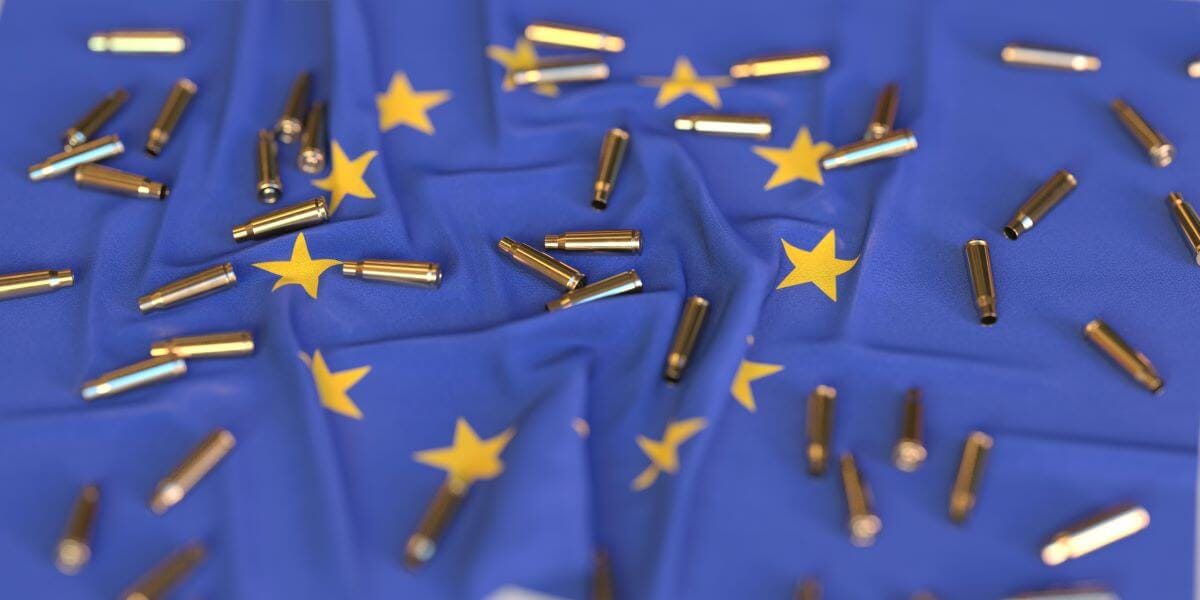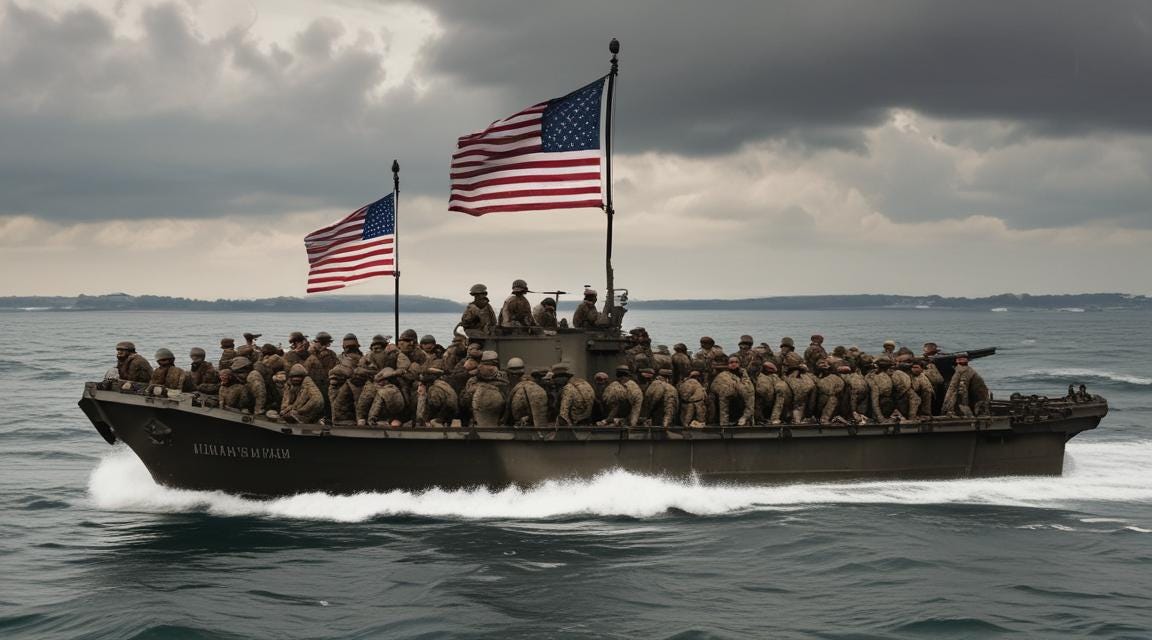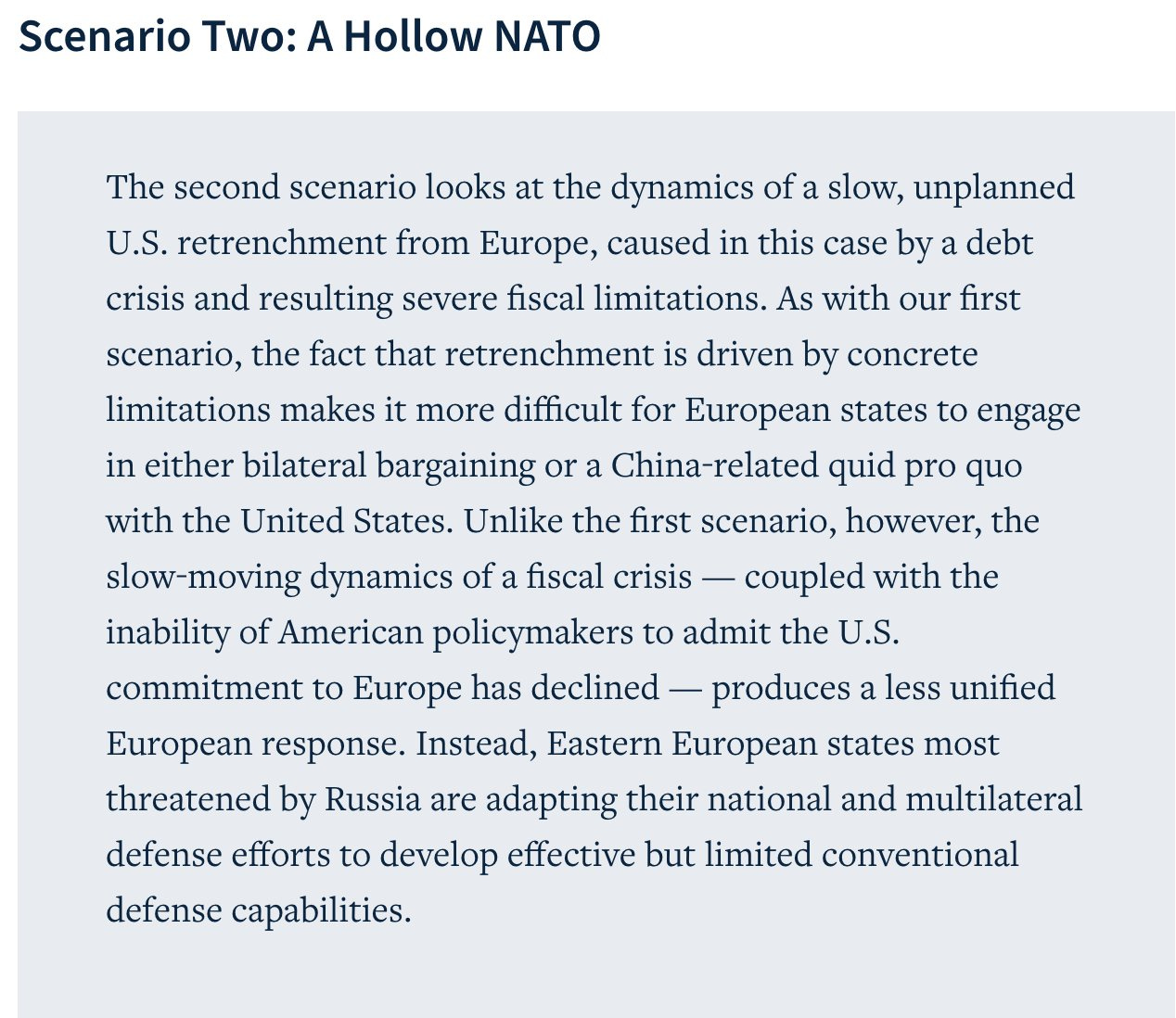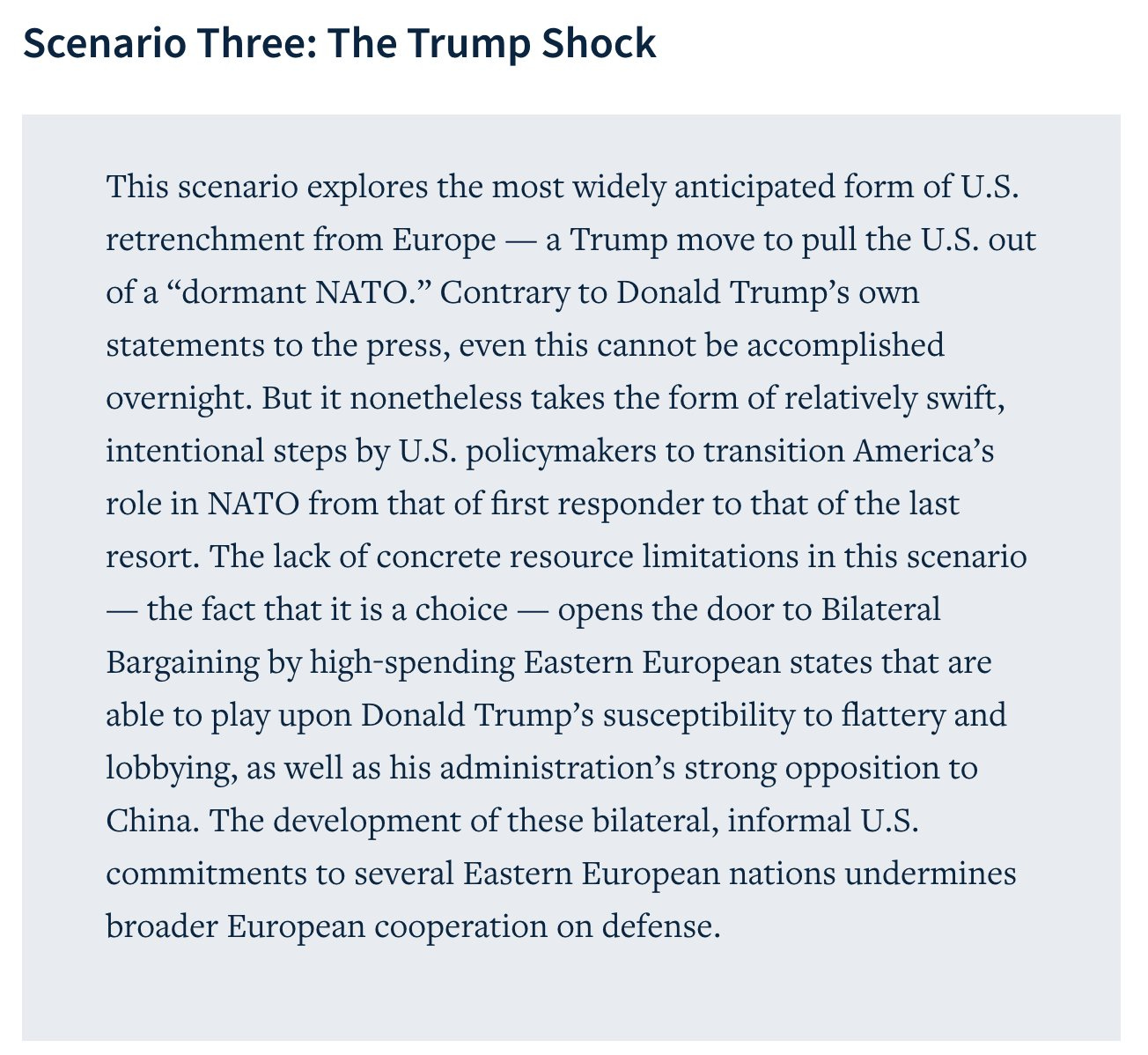It’s NATO week in Washington, as the leaders of the alliance’s now 32 (!!) member states descend on the city to throw a birthday party for the alliance. And of course, the city is experiencing what can only be described as a heat index approximating the 17th Circle of hell.
NATO is celebrating its 75th anniversary, a remarkably long-lived existence for such an organization, and an age that puts it within spitting distance of becoming the next nominee for U.S. president.
NATO has had significant successes over the years, particularly during the Cold War, when it acted as formidable organizational tool in the struggle against the Soviet Union. But it’s also not had such a great recent history, from the legacies of NATO expansion to its bloody intervention in Libya. And overtime, the alliance has morphed from a vehicle to pursue US interests in Europe to something more closely approximating a civic religion for Washington’s chattering classes. Expect to hear a lot this week about the ways that NATO keeps us safe, democratic and free, as the alliance itself engages in an all-out public relations blitz to cement its own importance.
Certainly, NATO has proven itself capable of reinvention a number of times over; it is probably be a mistake to bet against it continuing in some form. But the storm clouds that are looming over the alliance carry a rather different cast than past challenges did. Today, the question isn’t about NATO’s structure or purpose, but rather about whether America will continue to play the leading role in European defense. With growing voices in Republican politics calling for greater burden shifting to European states, tensions created by the war in Ukraine, budgetary constraints, and the rise of China, the future of American military power in Europe is less certain than it has been in decades.
To celebrate this Diamond Jubilee, I have a new paper out this week via Stimson that takes a foresight-inflected approach to thinking about these questions. The paper maps out the ways in which US retrenchment might happen, the strategies that European states might adopt in response, and then tries to tell some plausible stories about the future of European security under conditions of American retrenchment.
Continue reading for a preview below, or go straight to the whole paper on Stimson’s website here.
American Roulette
This paper grew out of discussions about Donald Trump and whether he will pull the U.S. out of NATO. Foreign Affairs even ran an expert survey this week asking whether the alliance will survive a second Trump presidency. But the turmoil surrounding America’s role in NATO is deeper than one mercurial president. As a report from the European Council on Foreign Relations put it recently, “The fact that the nations of Europe cannot defend themselves without resorting to NATO and the help of the United States has never been more obvious; and yet, it has never been less certain that the US commitment to European security will remain firm.”
NATO boosters — including the Biden administration — want to sustain the status quo. And they may be right that a significant U.S. commitment in Europe can continue indefinitely. But a host of factors suggest that some level of U.S. burden-shifting is coming in the next few decades.
In the paper, I argue that Europe faces a collective action problem on defense. Policymakers must settle four dilemmas:
Where and against whom should European defense be focused?
Which capabilities are needed — and from which countries?
Who gets to reap the economic benefits of defense in Europe?
What institutional formations are best suited to manage European defense?
We all know about these dilemmas, even if only implicitly. They’ve traditionally been overcome by the US role in NATO, which smothers the European collective action problem by simply making decisions and providing the military resources necessary. European states have rarely been willing to question this state of affairs. But in the absence of US military force, these dilemmas would pop back to the front of policy discussions.
To construct plausible scenarios, we need to think about the ways in which the United States might retrench from Europe. Two of the more obvious aspects are speed and intention, which we can use to divide out potential U.S. retrenchment options: how fast does the US leave the European continent? Is it in respond to a conscious political choice in Washington, or as a result of some unplanned contingency?
We also need to think about European countries and their strategic responses to U.S. retrenchment. How might different states seek to fill their own security gaps after U.S. retrenchment? They might, for example:
Engage in “Bilateral Bargaining,” appealing directly to the United States to backstop their security through bilateral defense commitments outside the NATO framework.
Offer the United States a “China Quid Pro Quo,” making significant concessions on China policy, in exchange for a U.S. pledge to maintain specific capabilities in Europe.
Focus on “Homegrown Adaptation,” a sudden sprint toward native military capabilities in some form. This is by far the broadest of the options available because it could take multiple forms, ranging from a concerted European effort to build out a continental defense industrial base and create a coherent joint command structure to a much narrower, predominately national and minilateral approach in which states turn to smaller groupings like the Weimar Triangle.
The scenarios apply these strategies across three plausible potential futures in which the United States retrenches from Europe: a Taiwan Contingency, a debt-crisis induced slow retrenchment, and a “Trump” shock. Not all strategies are plausible in all cases, and the scenarios show that the range of outcomes is far wider than a simple binary of “adapt” or “don’t adapt.”
You can find the full narrative for each scenario in the paper, but even from the overviews, you can see some interesting takeaways. The scenarios are particularly useful for helping us to think through the best and worst ways for a potential U.S. retrenchment from Europe to occur, and for thinking about where barriers to cooperation in Europe might arise. One surprising takeaway for me was that a fast retrenchment might actually be better at producing a coherent European defense than a slow, ‘boiling-a-frog’ process of gradual U.S. retrenchment over time. Another takeaway that shouldn’t surprise anyone is that although a Trump withdrawal from NATO - or a shift to a ‘dormant NATO’ - is probably the most likely of these scenarios to actually happen in the near future, the quixotic nature of Donald Trump himself also offers significant pitfalls for a genuine U.S. retrenchment, rather than one that is mostly rhetorical or symbolic.
The paper also talks about three wildcard issues: the war in Ukraine, Russian behavior, and the question of extended nuclear deterrence. Each is closely related to the question of U.S. presence in Europe and to NATO, but all could vary across these scenarios.
The title of the paper is ‘American Roulette,’ and the reference should be obvious. When we talk about European security, our reference points is all-too-often Russia, and how its obviously aggressive actions will make states in Europe less secure. But in many ways, the future of European security is less dependent on decisions made in Moscow than on decisions made in Washington. With U.S. retrenchment from Europe increasingly likely in the coming years, it would be a high-stakes gamble indeed for by American and European policymakers not to plan for such a contingency.












The precise strategy of the China hawks including Biden admin is to extract concessions from Europe on China in return for US commitments to Europe. It may be cynical but if the contest with China is truly global and economic / technological, the move is to weaken Chinas growth and access to tech in Europe, force it to generate growth in developing markets + get NATO into Asia. US narrative of Russia trying to conqueror Europe is designed to push Europe to burden share more, not because intelligence indicates Russia has intentions to attack nato countries
The republicans want Europe up do more not because they want to leave and not influence EU policy, they just want to do it cheaply to focus on China